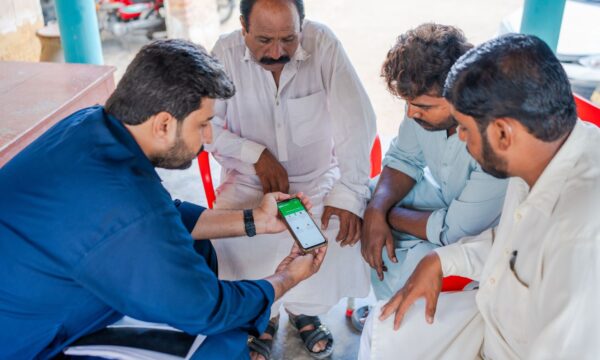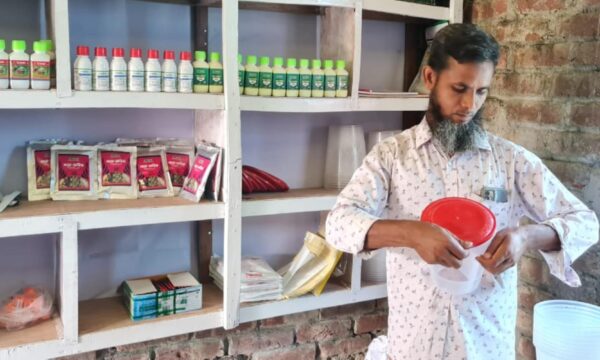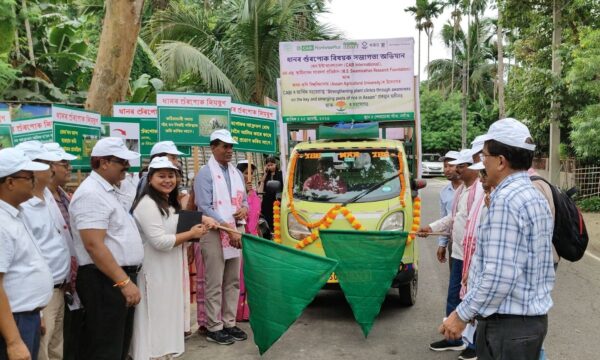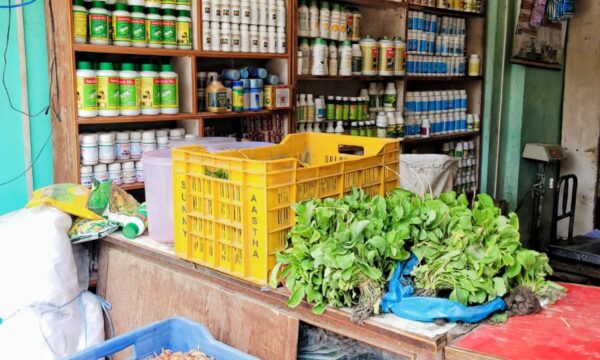Agro-dealers provide vital support to Sri Lanka’s farmers. These agricultural input suppliers are often the first point of contact for smallholders who need advice on plant protection products. However, agro-dealers often lack formal training in safer pesticide use and pesticide alternatives. This can lead to the misuse of agro-chemicals, environmental harm, and health risks for both farmers and consumers.
In addition, Sri Lanka’s agro-dealers (and smallholders) face a unique set of challenges. As an island nation, the country’s agricultural sector is particularly vulnerable to climate shocks. This includes an increased frequency of droughts and flooding, as well as coastal erosion and rising sea levels. Farmers need advice and inputs tailored to address these conditions. Agro-dealers are well placed to deliver climate-smart knowledge and products. However, they need formal training to do so. Pesticide risk reduction is critical.
Streamlining training and certification for Sri Lanka’s agro-dealers
In Sri Lanka, all agro-dealers must hold a National Vocational Qualification (NVQ) at level 4 in order to operate. Various organizations have agreed on a pathway to deliver the necessary training and certification. This route uses a Recognition of Prior Learning (RPL) approach, which recognizes knowledge learned informally. The organizations involved include:
- Tertiary and Vocational Education Commission (TVEC)
- National Apprentice and Industrial Training Authority (NAITA)
- Registrar of Pesticides at the Department of Agriculture (RoP-DoA)
The initial RoP-DoA training course will take 400 hours to complete. After this time, agro-dealers will receive a provisional licence to operate. Following four years of on-the-job experience, NAITA will assess the agro-dealers’ performance. Those who pass the assessment will be able to obtain their full NVQ level 4 certification. This will enable them to operate as fully licensed agro-dealers.
Working in partnership to deliver Sri Lanka’s agro-dealer training
Through PlantwisePlusPlantwisePlus, CABI is collaborating with Sri Lanka’s RoP-DoA to support the new licensing scheme. The initiative will adapt and expand the existing training programme, helping it to meet the new national qualification standards. Ultimately, the training will enhance the effectiveness, professionalism, and long-term impact of agro-dealers across the country.
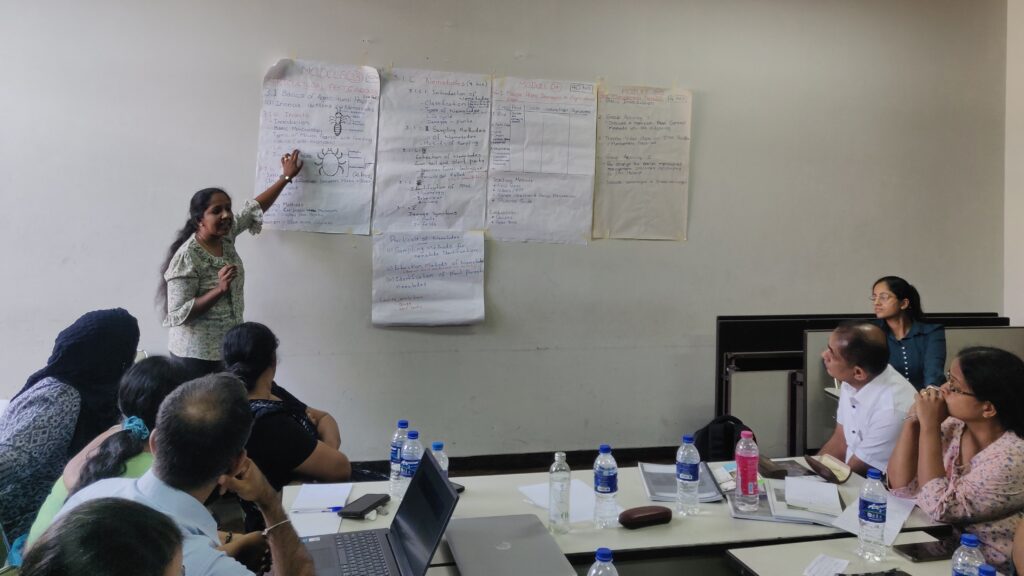
A core part of this effort is the development of training materials. These will help agro-dealers to become more knowledgeable and trusted input advisors. The newly agreed RPL route has led to a reduction in the amount of time required for teaching. Therefore, workshops have considered training content to meet the RPL route. CABI and staff from the DoA jointly developed a training outline, with the activity being led by the Register of Pesticides (RoP). The initiative is also developing a training toolkit using a blended approach, incorporating:
- Digital content from CABI Academy
- Participatory activities
- Presentations
- Videos
Incorporating PlantwisePlus courses into the training
In November 2024, PlantwisePlus and the DoA held a workshop to further develop training content. To address capacity building, they invited newly recruited staff to take part. Joining the event were 45 staff members (21 women and 24 men) from various institutes within the DoA. During the workshop, staff worked in groups to develop a draft curriculum for their relevant topic area. They then shared a draft plan showing the required materials and duration of training. Participants discussed them and gave feedback.
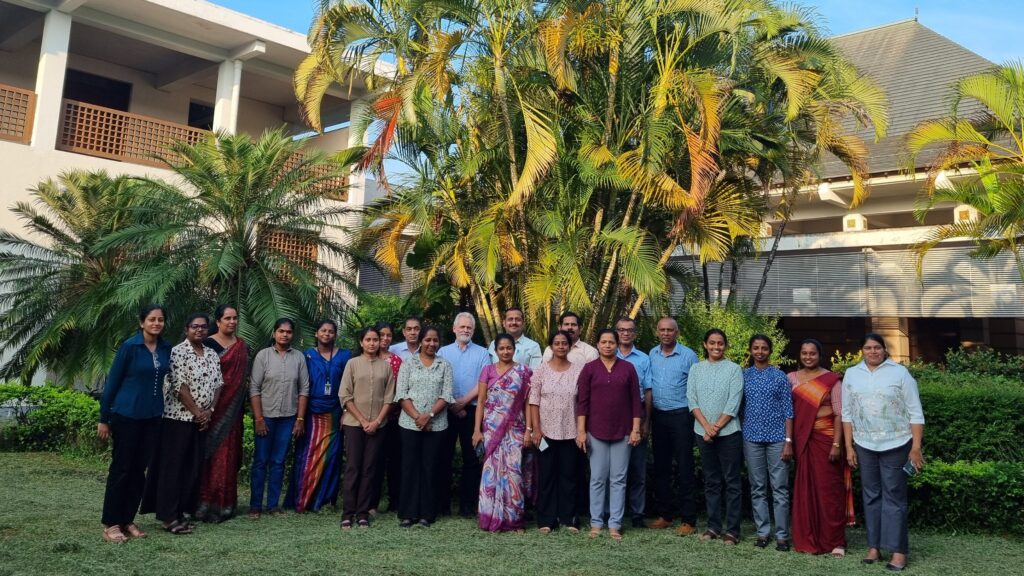
To provide content for the mandatory training scheme, PlantwisePlus also suggested including CABI Academy courses. So far, the Introduction to BioBioprotection Products course has been translated into Sinhala and Tamil. The programme plans to translate more courses once they have been finalized. These include training on Crop Pest Diagnostics and Crop Pest Management. They will most likely be followed by a translation of the Reducing Pesticide Risk course. The original Plantwise Plant Doctor Training course has been updated, translated, and included in the training. Additionally, PlantwisePlus has developed animations on the use of Personal Protective Equipment (PPE), including how to put it on and how to remove it safely after spraying crops. In addition, the initiative commissioned three videos locally on:
- The safe use and handling of pesticides
- Early identification of key weed species
- A model agro-dealer shop
Improving the training materials and planning next steps
In March 2025, CABI led a three-day workshop to assess progress in developing new agro-dealer training modules. It brought together 37 participants (19 women and 18 men) from the DoA and other partner organizations. Attendees reviewed training outlines and gathered feedback from technical leads. The aim was to refine plans for rolling out future training.
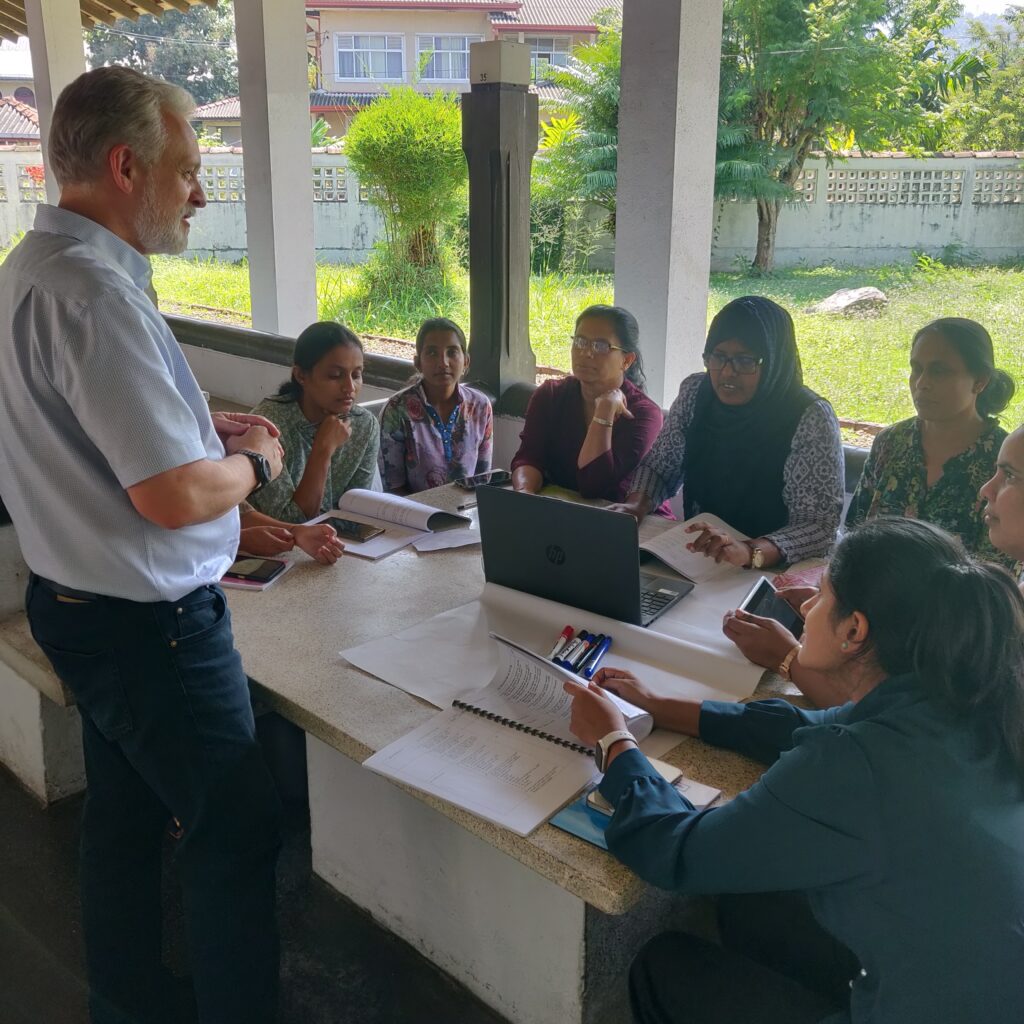
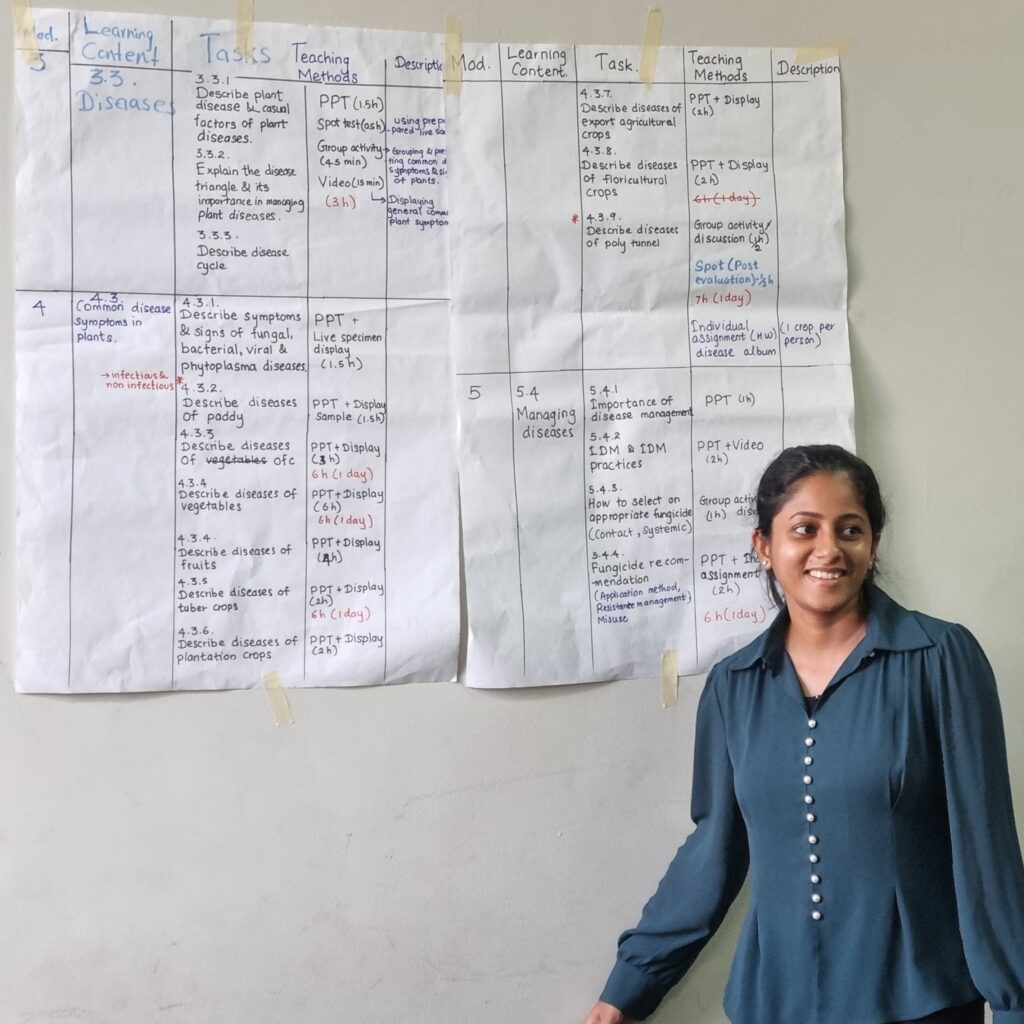
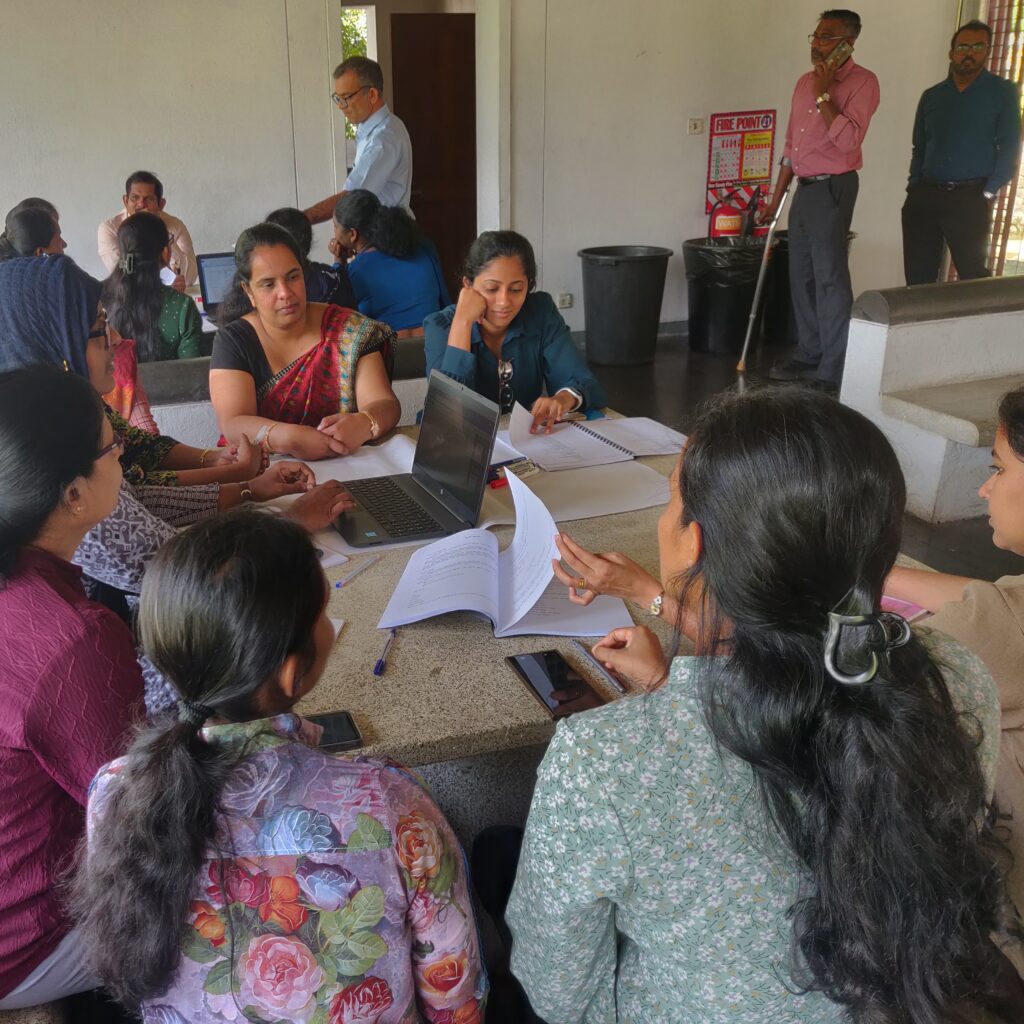
Each training module coordinator presented their draft outlines. These covered topics such as safe pesticide use, soil health, seed quality, pest management, biocontrol and business skills. Participants offered ideas for improvements and assigned next steps for finalizing each module. They also created a WhatsApp group to ensure continuous collaboration between meetings and established a Microsoft Teams space to share and store training materials. Attendees agreed on follow-up actions to keep the process on track. In addition, they discussed funding agreements and the next phase of CABI’s PlantwisePlus programme in Sri Lanka.
The future of Sri Lanka’s agro-dealer network
Although training has not yet begun, the workshops mark an important step. The goal is to build a more resilient and informed agro-dealer network. Once implemented, the training programme will help agro-dealers deliver advice on pesticide risk reduction. The training will also enhance business practices and strengthen the role of agro-dealers in sustainable food systems. Looking ahead, CABI’s vision is to support Sri Lanka’s agro-dealers in becoming more impactful and sustainable. Their training will help them to build stronger links between agro-dealers, extension services, and farmers.
Sri Lanka faces climate risks and changing policies. The country’s agro-dealers must be equipped not just with products but also with knowledge. Structured training, collaborative partnerships and long-term planning are critical. CABI is helping to lay the groundwork for a more resilient, responsive agro-dealer system. In future, this system will support Sri Lanka’s farmers as they adapt, bringing the country closer to its goal of becoming a world leader in sustainable agriculture.
Find out more about CABI’s work in Sri Lanka
Pesticide risks for farmers in Sri Lanka: The overlooked gender divide
Permanent Crop Clinic Programme in Sri Lanka to be strengthened following stakeholder meeting
Invasive species in Sri Lanka: A rising threat
PlantwisePlus gratefully acknowledges the financial support of the Directorate-General for International Cooperation, Netherlands (DGIS); European Commission Directorate General for International Partnerships (INTPA); UK International Development from the UK government; and the Swiss Agency for Development and Cooperation (SDC).
All images © CABI
Related News & Blogs
In photos: how plant clinics support advisory services in Bangladesh
Over the past decade, CABI has worked in Bangladesh to strengthen national plant health systems, first through Plantwise and since 2021, PlantwisePlus. The programme works with partners to ensure farmers have access to reliable, science-driven crop hea…
24 February 2026

